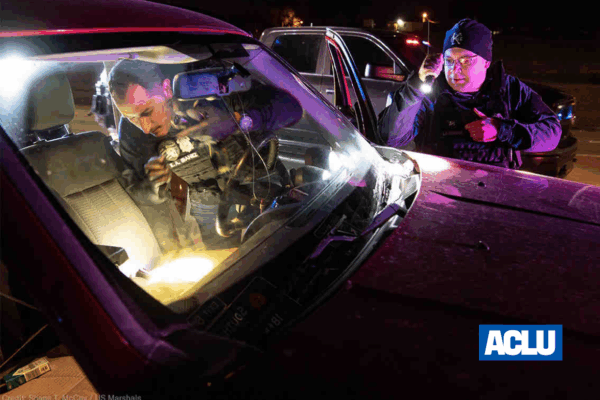Historically, civil forfeiture, which allows police to seize — and then keep or sell — any property they allege is involved in a crime, was focused on legitimate public safety purposes of stopping drug kingpins and criminal enterprises. It was a way for law enforcement to cripple large-scale criminal enterprises by diverting their resources.
But today, aided by deeply flawed laws like those in North Dakota, many police departments use forfeiture to benefit their bottom lines, making seizures motivated by profit rather than crime-fighting. For people whose property has been seized through civil asset forfeiture, legally regaining such property is notoriously difficult and expensive, with costs sometimes exceeding the value of the property.
That’s why the ACLU of North Dakota is happy to see that a working group has been appointed to House Bill 1286, a bill that would substantially overhaul civil forfeiture in the state.
The ACLU of North Dakota supports House Bill 1286. Law enforcement’s retention of forfeiture proceeds violates two key constitutional principles: due process and separation of powers. By passing House Bill 1286, the legislature can rectify serious flaws in state law and establish significant safeguards for innocent North Dakotans.
First and foremost, House Bill 1286 would deposit all civil forfeiture proceeds into the state school fund, redirecting those funds away from law enforcement coffers. Currently, after property has been forfeited, agencies can retain up to 100 percent of the proceeds. This creates a perverse incentive to pursue forfeiture cases, a practice widely criticized as “policing for profit.” According to the bill’s fiscal note, state law enforcement and regional task forces have generated an estimated $1.62 million in forfeiture funding.
Law enforcement’s retention of forfeiture proceeds violates two key constitutional principles: due process and separation of powers. Giving law enforcement a direct financial stake in seizures violates the basic due process requirement of impartiality in the administration of justice—a bedrock principle of the American legal system. Allowing state and local law enforcement to directly benefit from forfeiture proceeds dangerously shifts law enforcement priorities from fairly and impartially administering justice to generating revenue.
Moreover, funding agencies outside the legislative process violate the separation of powers. State legislators are responsible for raising and appropriating funds. By retaining forfeiture proceeds, police departments and prosecutors’ offices — members of the executive branch — become self-financing agencies, unaccountable to members of the North Dakota legislature, and, by extension, to the public at large.
Second, House Bill 1286 would strengthen due process for property owners facing civil forfeiture. The bill would require a conviction in criminal court before property can be forfeited in civil court. Today, only 12 states (including Minnesota and Montana) have similar protections for property owners.
Another three states (Nebraska, New Mexico and North Carolina) have abolished civil forfeiture entirely, and replaced it with criminal forfeiture. To further shield owners, House Bill 1286 would raise the standard of proof from probable cause to clear and convincing evidence. In addition, the bill would create a new proportionality hearing that would allow owners to challenge “unconstitutionally excessive” forfeitures.
Finally, House Bill 1286 would implement the state’s first reporting requirements for civil forfeiture. North Dakota is one of just six states that doesn’t require any tracking of seizures and forfeitures. This bill would require agencies to annually report the total number of seizures by value and property type, the underlying crimes that led to the seizure, and any additional information the attorney general may require. These disclosure requirements would play a vital role in keeping both the public and legislators well-informed about civil forfeiture in North Dakota.
By enacting these simple, commonsense but vitally needed changes in civil forfeiture law and procedures, House Bill 1286 would protect innocent property owners from being unjustly deprived of their property.

